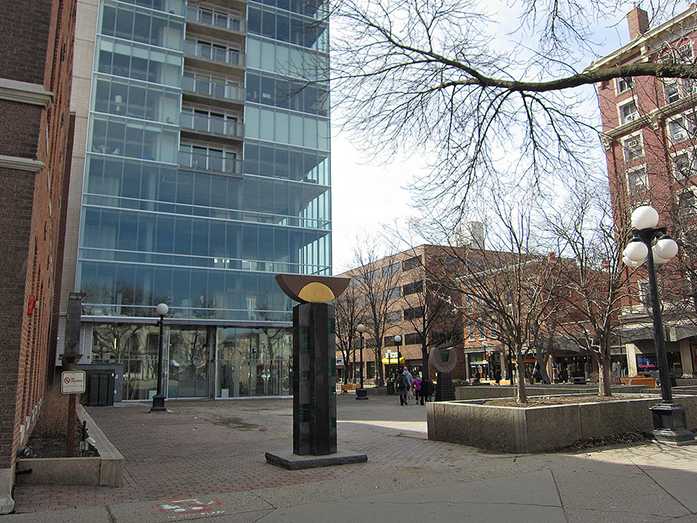Some residents of Iowa City have likened to calling their city “People’s Republic of Johnson County.” Despite the populist imagery, local government ideologies and practices do not necessarily echo the tried-and-true blue painted by this county in national elections, and somewhat so in state-level elections.
According to data from the Johnson County Auditor’s Office and Iowa Secretary of State’s Office from the 2014 election, this county voted more than two-fold for Democrat Bruce Braley over Republican Joni Ernst, 33,597 to 16,652. Democrat Dave Loebsack toppled Republican Mariannette Miller-Meeks with similar numbers. In the state gubernatorial race, Democrat Jack Hatch beat incumbent Republican Gov. Terry Branstad in the only county whose voters were definitively willing to oust the now-controversial governor.
On the local level, however, voters were less concerned with the Johnson County Courthouse Annex and local-option sales tax, with both provisions lacking to receive enough support to pass.
That being said, residents might view the recent wave of Republican hopeful stumps and summits as an insurgence from the right. Karen Fesler, national caucus coalition adviser for former Sen. Rick Santorum, R-Pa., who won the Iowa caucuses in 2012, told The Daily Iowan last week, “Johnson County, despite being a blue dot in a sea of red, is still the fifth-largest Republican County in the state.”
With myriad candidacies, the GOP seeks to target beyond the 17,884 registered Republicans in the county, according the Johnson County Auditor’s Office (Jan. 22). Santorum, Louisiana Gov. Bobby Jindal, and former Arkansas Gov. Mike Huckabee held a summit just south of Iowa City targeted at evangelical voters during the Democratic debate, while Sen. Rand Paul, R-Ky., was also in town last week for a rally on the Pentacrest.
Republican hopefuls aim their platforms toward the fence-sitters. In Johnson County, there are 31,593 registered independents to the 37,991 registered Democrats, according to the Auditor’s Office data.
Minimum-wage hike aside (on which the Iowa City City Council has taken no action), the city government utilizes practices that many liberals would cry foul to. When City Manager Tom Markus was the city manager of the Detroit suburb of Birmingham, he was perceived as having success in developing that region. Here, he helped resurrect tax-increment financing.
The implementation of TIF allows tax breaks up-front for developers in order to encourage investment, in turn spurring growth. TIF is actually an age-old practice that, in theory, concentrates development through mix-used infrastructure as well as expanding job and housing opportunities. However, the tax relief is often exclusively offered to certain sites and developers, such as (ahem) the Moen Group and the proposed Chauncey Building.
As a result, TIF subsidizes these choice competitors, freezing their taxes, while shifting the burden of taxes onto other businesses unless a local government truly cuts spending — something not indicated in Iowa City. Anticipated tax-revenue diversions into other construction projects, such as the Gateway Project (forecasted to cost $12.4 million in public taxes through general-obligation bonds) or refurbishing the Pedestrian Mall (another $10 million project). Johnson County voters opposed a local tax hike in rejecting the local-option sales tax. Yet, taxes may still be subject to unwanted increases outside of their direct control.
The actions of the Iowa City government are not mirroring the liberalism local residents see in themselves. Viewing these economic practices conducted locally, Republicans may have a glimpse into a coup of an otherwise Democratic stronghold. Johnson County’s idea of a “People’s Republic” might be couched in an infatuation with federal election trends rather than tracking and participating in local politics, which affect policies that have a direct effect on the community.



